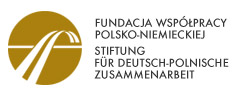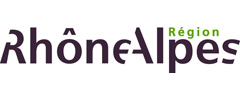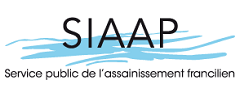Linking Strong Climate Solutions with Gender Equality
Women Civil Society Leaders Report on Women’s Concrete Actions on Climate Change
19.11.2013 |WICF

Emilia Reyes, civil society representative and part of the Mexican delegation, speaking during the WECF press conference
Speakers included two women from our leadership programme, we are currently conducting in the frame of the Flow plus project. Sabine Bock, Climate and Energy Director for Women in Europe for a Common Future (WECF) the organizer of the event, called on the government parties at COP 19: “You need to leave your differences behind and to focus on making progress towards an international agreement that maximizes our response to climate change while safeguarding human rights.” Bock called for a paradigm shift from profit-driven development to social and ecological transformation that also ensures gender equitable outcomes and congratulated the COP for putting gender on the agenda during the first week of the COP.
The whole press conference can be watched via the UNFCCC website
Teresita Vistro of the Philippines representing National Federation of Women Farmers, and the Asia Pacific Forum on Women, Law and Development (APWLD) said that women and men experience climate change differently.
Vistro said: “Gender inequality worsens women’s coping capacity. This has been clearly shown in the recent Haiyan tragedy in the Philippines. The worst affected area is Eastern Visayas.. Accounts that we get from the ground, estimate that more women and children died as they are the ones in the communities together with children and older people. So that when the storm surge accompanied by tidal waves lashed their communities, they were not able to get out of their homes, and drowned.”
“It is heartening to note in the various negotiations particularly from African countries echoing the importance of traditional knowledge of women, indigenous and local communities but unfortunately these are still voices in the wilderness in this COP.”
Isis Alvarez representing the Global Forest Coalition from Colombia called on the forum to focus on socially-just and sound forest policies that allow women to have a more active involvement in the way they manage their forests sustainably. Alvarez said: “Forest dependent people's; Indigenous peoples, peasants, pastoralists and especially women often carry the main burden of trade-offs and offset approaches such as REDD+ (Reduced Emissions from Deforestation and Forest Degradation).” She continued: “Women are seldom involved in these projects both as participants in decision-making from [these] payment schemes that allow polluters to continue with 'business as usual,”
Kalyani Raj came to COP 19 as a part of a WECF women leaders training program. Representing the All India Women`s Conference. According to Raj,
“most rural women [in India] have traditional knowledge of climate adaption passed on from generations. They are imbedded in their way of life as a means of survival.
“Devices like solar lanterns and solar cookers are viewed by women as efficient alternate energy resources and ideally these can be up scaled to complement traditional knowledge to work out effective mitigation and adaption strategies.”
Emilia Reyes attended COP 19 as both a civil society representative from Equidad de Genero and as a member of the Mexican Delegation. Reyes noted that the parties to COP 19 took a step forward in favour of gender equality under the home of the UNFCCC. “An agreed document under the SBI (item 19) has set a concrete floor on which we will stand in the years to follow to take substantive action to institutionalize the gender perspective.” said Reyes.
Ulrike Röhr of GenderCC/LIFE e.V. of Germany is a veteran of the UNFCCC process having participated in women’s activities at the COPs since COP 1 in Berlin in 1995. From the perspective of a long view, Röhr said: “We have seen lots of progress made [at the UNFCCC] in recent years on gender equality. The Gender Decision and the in-session-workshop on gender and climate change provide us with the ground, and seeds for gender equality have been sown. On the other hand, a lot still has to be done.”
“We call upon parties [to the UNFCCC] for additional funding for a supplementary budget earmarked to increase gender capacity in the Secretariat.”
The final speaker of the group, Osprey Orielle Lake of the International Women’s Earth and Climate Initiative in the US reported on the International Women’s Summit on Climate Change and Sustainability Solutions that took place in New York in September of this year where 100 women leaders from 40+ countries met for three and one half days of deliberations.
Ulrike Röhr closed the press conference on a cautionary note: "Despite progress that has been made on gender in the UNFCCC, the negotiations remain stagnant. You cannot mainstream gender concerns into a zero outcome. We need negotiators to walk the talk on gender AND climate change!”
Related News
Meet the Winners of the Gender Just Climate Solutions Award at COP24
On the 70th anniversary of the Universal Declaration of Human Rights, we awarded Gender Just Climate Solutions Winners at the climate negotiations in Katowice, Poland
11.12.2018
Invitation: Gender Just Climate Solutions Award 2018
10 December, COP24 Katowice
04.12.2018
Getting to the Future We Want
4-7 November, Brussels: European Environmental Bureau’s (EEB) Annual Conference
12.11.2018
GoodFood4All
WECF and partners all over Europe start GoodFood4All Campaign
06.11.2018
#Ruralwomen: join our Women2030 campaign!
15.10.2018






































